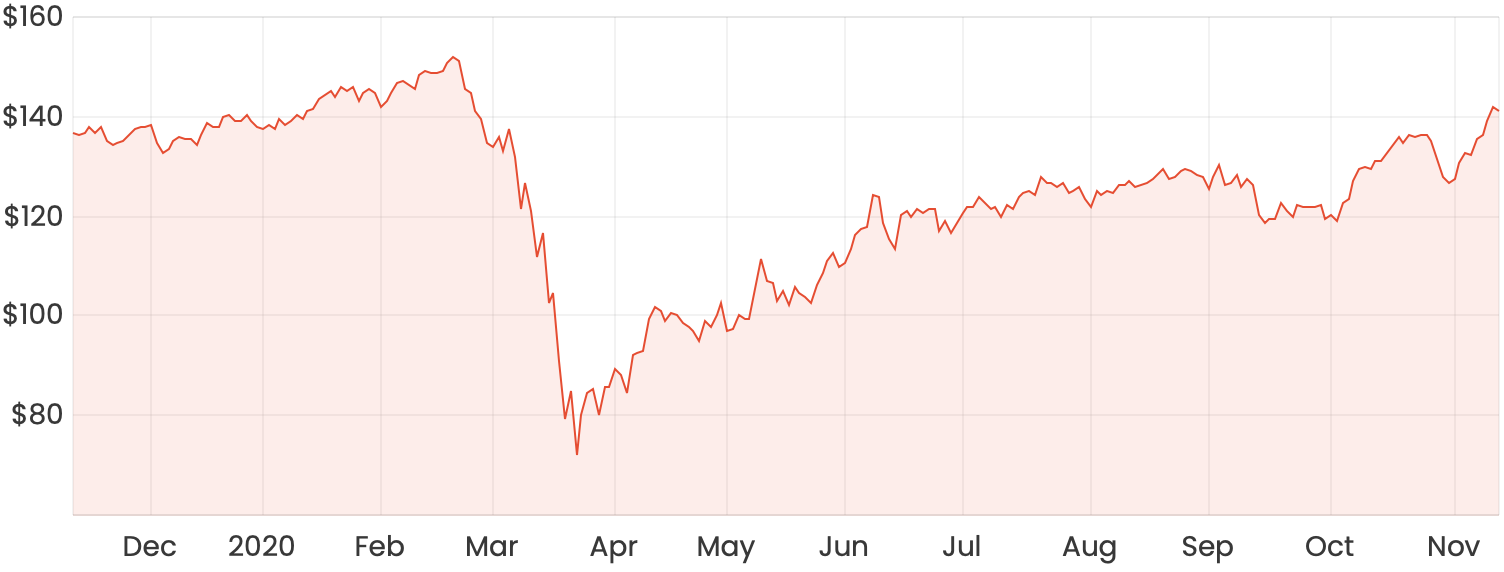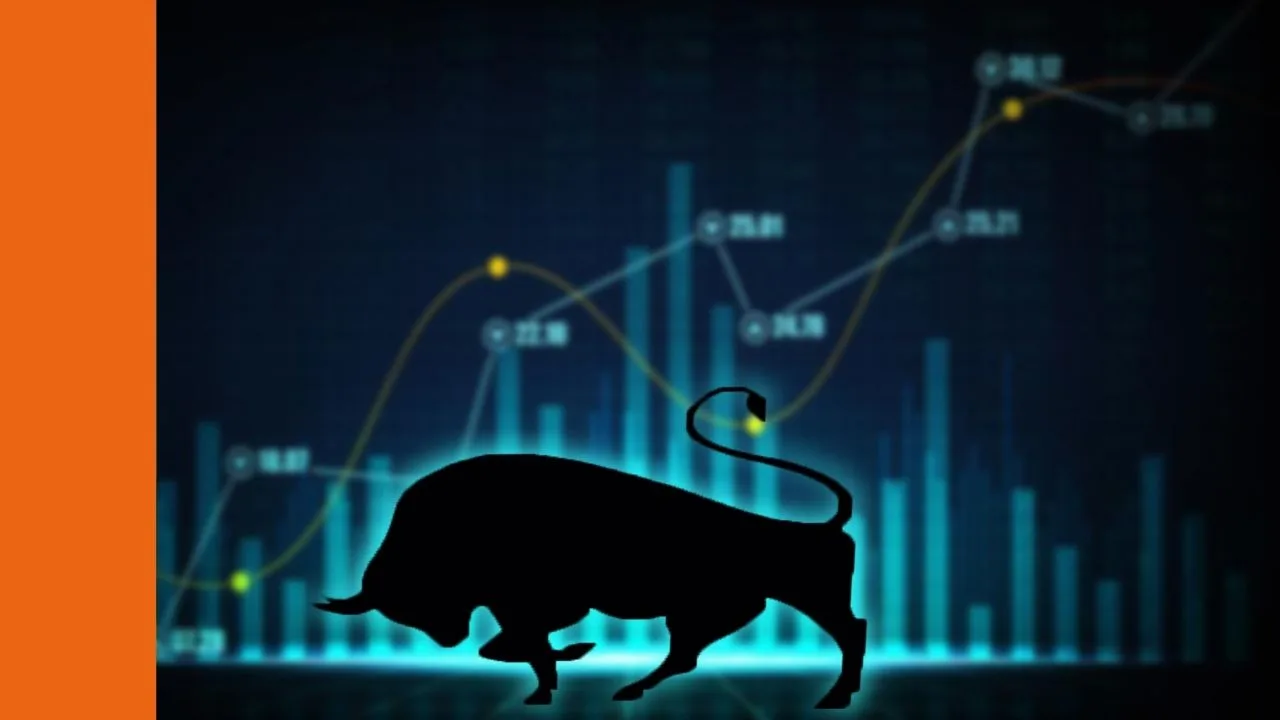Macquarie Group Ltd (ASX: MGQ) is often referred to as the number-five bank to the big four banks: Commonwealth Bank of Australia (ASX: CBA), Westpac Banking Corp (ASX: WBC), Australia and New Zealand Banking GrpLtd (ASX: ANZ), and National Australia Bank Ltd(ASX: NAB).
But labels aside, is Macquarie the best banking share on the ASX?
Big five?
With a current market capitalisation of $51.02 billion, Macquarie trails ANZ ($58.57 billion), the smallest of the ‘big four’ banks on a market cap basis. However, unlike the big four banks, the Macquarie share price has recovered much faster since the 23 March market low. At the time of writing, Macquarie shares are trading at $141.23 per share, up about 49% from 23 March when the shares closed at $72.02.
MQG share price chart

Macquarie posted its HY21 results last week and delivered a half-year net profit of $985 million, continuing its 51-year record of unbroken profitability. This was down 23% from the HY20 results.
On Wednesday, CBA posted $1.9 billion net profit after tax for 1Q21, down 16% from 1Q20, so why is Macquarie’s share price outperforming CBA?
Macquarie’s diverse business operations
Unlike CBA and the other big four banks that focus mainly on retail banking in Australia, Macquarie has a global investment banking remit with a much smaller retail banking operation in Australia.
Macquarie separates its business activities into two categories: annuity-style businesses and market-facing activities. Banking and Financial Services fit under the annuity-style businesses and in HY21, contributed $317 million to the group’s overall income.
Macquarie’s business is broadly international with 68% of total income coming from international sources. All of Macquarie’s operating groups produced net-profit contributions in 1H21 apart from one exception, Macquarie Capital, which recognised a net loss of $189 million, down from a $227 million net profit in HY20.
Traditional banking companies rely heavily on a Net Interest Margin or NIM, which is basically the difference between the interest rate at which the bank can lend and the interest rate it pays to borrow that money. The margin or spread between these rates is where the bank can generate profits.
CBA’s operating income was flat in its 1Q21 results, and the company pointed towards lower NIM as one reason for the flat growth. With traditional banking making up one portion of Macquarie’s business, it is a lot less sensitive to interest rate changes as the NIM is less important to overall revenue.
Macquarie’s ability to post a continued profit, drawing on international sources and diverse business operations during a time of uncertain market conditions, is a mark of a well-run quality company. The recovery of the Macquarie share price shows the market agrees with this sentiment. The share price is close to where it was trading when the company posted its FY20 results, where Macquarie was delivering much better results than now with $2.7 billion net profit.
Dividend play with growth potential
Macquarie announced an HY21 dividend of $1.35 per share, 40% franked. This is welcome news for dividend investors and represents an annualised dividend yield of 2.23%. The dividend is a reduction from the $1.80 per share dividend from HY20, which makes Macquarie a decent dividend payer.
The HY21 dividend represents a payout ratio of 50%, and Macquarie’s dividend policy remains at a 60% to 80% payout ratio, suggesting that the dividend will increase to where it was and beyond when the effects of COVID-19 subside.
Would I buy Macquarie shares at current prices?
With the share price of Macquarie approaching its all-time high, investors need to return to the business fundamentals. In doing so, I think you can see that Macquarie is better-positioned than the other big four banks, given its diverse business operations. I think it can grow over time and push to new highs.







